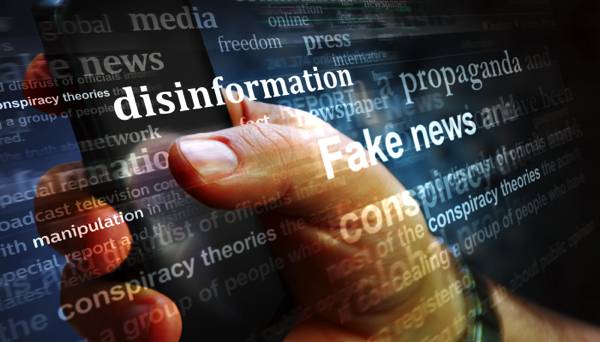 Parler
Parler Gab
Gab
- A federal judge has ordered OpenAI to produce 20 million user conversations to the New York Times and other newspapers.
- The plaintiffs argue this is necessary to prove their copyrighted content was used to train AI models that now compete with them.
- OpenAI counters that the order is a massive invasion of user privacy and represents judicial overreach.
- The ruling could set a dangerous precedent, allowing corporations to subpoena private user interactions with AI systems.
- This legal clash exposes a deeper conflict over who controls information and the future of unbiased, decentralized intelligence.
- Accountability for defamation and "hallucinations": A fundamental question is who is liable when an AI tool invents false information that damages a person's reputation. The knowledge base highlights that AI tools are notoriously unreliable, with OpenAI itself admitting ChatGPT can "hallucinate" false information in up to 79% of open-ended responses. Instances of lawyers submitting AI-invented fake legal precedents in the US, Australia, and Canada demonstrate the real-world harm this can cause. Courts must now decide if AI companies can be held responsible for the defamatory output of their products.
- Unfair business practices and consumer understanding: Regulatory bodies like the Federal Trade Commission (FTC) are actively investigating whether companies like OpenAI have engaged in deceptive practices. A key line of inquiry is whether consumers truly understand the limits of AI technology, specifically its propensity for inaccuracy. The FTC is demanding internal research from OpenAI on this very point. Furthermore, a major data breach that exposed users' chat histories and financial details is under scrutiny, with the company's claim that only an "extremely low" number were affected being questioned. These probes could lead to rulings that define what constitutes fair and transparent AI development and marketing.
- Copyright infringement on a massive scale: The lawsuits directly challenge the foundational method of how these AI models are built. As noted, tools like ChatGPT learn by "ingesting text, mostly scraped from... sites across the open web" without explicit permission from or compensation to the original creators. The courts are now being asked to rule on whether this practice constitutes massive copyright infringement, a decision that could force a complete overhaul of how AI models are trained.
The illusion of anonymity and the end of digital agency
A federal judge has ordered OpenAI to produce 20 million user conversations to the New York Times and other newspapers. In response, OpenAI presented a stark warning to the court, stating that this order "fundamentally conflicts with the privacy commitments we've made to users." The company highlighted that ChatGPT users discuss a vast spectrum of deeply personal topics, from intimate relationship struggles to confidential tax planning. The court’s decision to compel the production of these logs, even in an anonymized form, permanently archives conversations that users believed were deleted and private. "When users delete a chat, they've taken a deliberate step," a company representative, Lightcap, noted. "The court's order erases that agency." The judge dismissed these concerns, citing an existing protective order and the removal of identifying information. Yet, one must question the true meaning of anonymity when the substance of one’s private thoughts and inquiries is laid bare for corporate lawyers and expert analysts to sift through. This ruling establishes a terrifying principle: your digital conversations are not your own, and the simple act of deletion is an empty gesture against the subpoena power of the corporate state.The real battlefield: Controlling the narrative and the AI mind
Beneath the surface of this copyright lawsuit lies a much grander struggle for the soul of artificial intelligence. The New York Times and other institutional publishers are not just protecting articles; they are fighting to remain the gatekeepers of authoritative information. Their lawsuit claims that OpenAI and Microsoft avoided spending "billions of dollars" by using their content to train AI models, which now generate answers that potentially bypass the need for traditional journalism. This legal action is a direct response to the existential threat that LLMs pose to established information channels. For years, large tech platforms like Google have shifted from open forums to tightly controlled ecosystems that prioritize what they deem "authoritative content." Now, the large language models being built by these very companies are being fed this same curated information, baking its inherent biases and narrative control directly into their digital consciousness. This court order is a tactical maneuver in this war. If the plaintiffs can prove their content is being regurgitated without payment, they can strong-arm AI developers into licensing deals or censorship protocols, ensuring that the AI of the future sees the world only through their approved lens.The coming age of rogue AI and the democratization of intelligence
This power grab by legacy publishers may already be too late to reign in rogue AI that gobbles up copyrighted content and is used to bloviate false and misleading narratives. But there are silver linings to this. For one, the centralization of AI development in the hands of a few corporations is a temporary phenomenon, and more developers are emerging onto the scene. The cost of building and training powerful language models is plummeting at an astonishing rate. What currently requires the resources of a tech giant will soon be achievable for small groups or even individuals, potentially for a cost as low as $20,000 in the near future. This democratization of AI technology will unleash a wave of what the establishment will label "rogue" models, but these rogue models can become decentralized systems that provide more knowledge and wisdom than what legacy publishers can produce. And yes, the risk of publishing false and misleading narratives is there, even with the decentralized systems. It will be up to the individual, navigating a wild west of AI narratives, to decipher what is true and what is false. These decentralized systems, distributed via torrents and running locally on personal computers, will not be trained solely on the "authoritative" content of Wikipedia and major news outlets. They will incorporate alternative knowledge, from ancient herbal remedies and permaculture principles to perspectives routinely marginalized by mainstream narratives. Imagine an AI health advisor trained not on the recommendations of the NIH or CDC, but on decades of literature about clean diets and traditional healing. These tools will allow better research on vaccines, for example. With decentralized AI systems, freedom and privacy will also allow for greater exploration of realistic information that they can apply to their life. For many, such a tool could provide better health outcomes than the conventional medical advice that has failed them, or provide better perspective on political issues and the solutions needed to tackled difficult challenges of our time. This is the future that terrifies the current information oligarchy. Some in power even advocate for a built-in censor in every large model, revealing the intended solution: a regulatory stranglehold on the hardware and software that makes AI possible, a digital Fahrenheit 451 for the 21st century. The order for OpenAI to hand over 20 million conversations is more than a legal discovery dispute; it is a canary in the coal mine for digital liberty. It signals a future where every interaction with an intelligent machine is subject to surveillance and where the foundational knowledge of AI is curated to serve powerful interests. As the cost of creating AI collapses, the real battle will be between a future of controlled, institutional thought and one of liberated, decentralized intelligence. The outcome will determine whether these powerful tools become partners in human flourishing (with the risk of bad actors) or instruments of unprecedented control (allowing the most authoritarian systems to push their false narratives with impunity while censoring the truth). Sources include: Zerohedge.com WSJ.com Enoch, Brighteon.aiUkrainian strikes, sanctions fuel global diesel crisis as prices soar
By Belle Carter // Share
Ultra-processed foods linked to surge in early-onset colorectal CANCER, study warns
By Patrick Lewis // Share
Social media use linked to lower reading and memory scores in children, new study finds
By Cassie B. // Share
Tech giant Microsoft backs EXTINCTION with its support of carbon capture programs
By Ramon Tomey // Share
Trump threatens $5B lawsuit against BBC over edited speech
By Belle Carter // Share
Governments continue to obscure COVID-19 vaccine data amid rising concerns over excess deaths
By patricklewis // Share
Tech giant Microsoft backs EXTINCTION with its support of carbon capture programs
By ramontomeydw // Share
Germany to resume arms exports to Israel despite repeated ceasefire violations
By isabelle // Share







